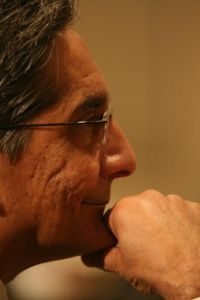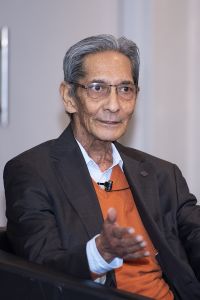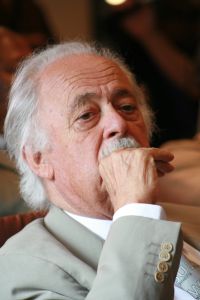Routinely in the democratic era, September is a month in which South Africa celebrates its heritage and thinks deeply about legacy. This year the latter dimension has had a particular urgency and a special poignancy for the Nelson Mandela Foundation, as first we lost AD, as we fondly referred to Achmat Dangor, then Ntate George Bizos, then Mme Ruth Bader Ginsburg. It has been a painful month for us.
In a world, and in countries, arguably increasingly defined by terrible failures of leadership, here are three role models for excellence. Their lives and their work exemplify what the Foundation regards as good leadership – a determination to take charge of one’s personal journey, a willingness to connect it to the collective journeys of community and society, and a sense of responsibility before these journeys are taken. Measured in this way, what extraordinary legacies these three extraordinary human beings have created! How inspiring their capacity to take the ordinary and make it extraordinary.
Although the Foundation worked with Judge Bader Ginsburg on our I Know This to Be True leadership development project, I never had the privilege of meeting her. Uncle George, on the other hand, I came to know as a trusted adviser and as a faithful friend and supporter of the Foundation. AD over many years was a mentor to me. All three have left their mark, personally and institutionally. We will not forget them.
It is tempting - perhaps especially so for a legacy organisation like the Foundation – to regard ‘legacy’ as something which must be received and protected, kept pristine as a heritage resource for future generations. But, of course, all legacies, including that of Madiba, are constantly made and remade as new generations interpret them, make sense of them, and use them as resources in ever-changing contexts. The challenge is to make legacy as widely available as possible, not as gatekeepers but rather as facilitators.
Having said that, always with legacies that are about freedom and justice, there will be a need to challenge those who seek either to co-opt or to destroy what has been built over a lifetime. In the case of Judge Bader Ginsburg, already we see the President of her country moving with unseemly haste and without regard for dignity, tradition or taste, to enable the unravelling of her legacy. The same President who has trashed our country and our continent, and who reportedly has also trashed Madiba and his legacy. The same President whose personal legacy will be inseparable from an outrageous tapestry of racism, sexism, xenophobia, dishonesty and public bullying.
Heritage Day found me in Mpumalanga engaging with the Swazi traditions and cultures to be found in that part of the world. I was honoured to have been invited by the Ngomane Royal family to join them in KaHhoyi as part of the Old Mutual and BrandSA programme supporting the 2020 matric class. I was also privileged to find time to visit the memorial in that province to Ntate Samora Machel. Now there was a head of state, a leader, to be proud of! And to be remembered. I was humbled, as a South African, to be reminded again of the role our neighbouring countries played in supporting the freedom struggles of our land. And the role those countries have played historically, and continue to play today, in building our economy.
The voice of Miriam Makeba echoed in my head as I drove home to Gauteng: “Mozambique, a luta continua, continua; Angola, a luta continua, continua …” Our heritage is their heritage. Their future is our future. We forget this at our peril.


